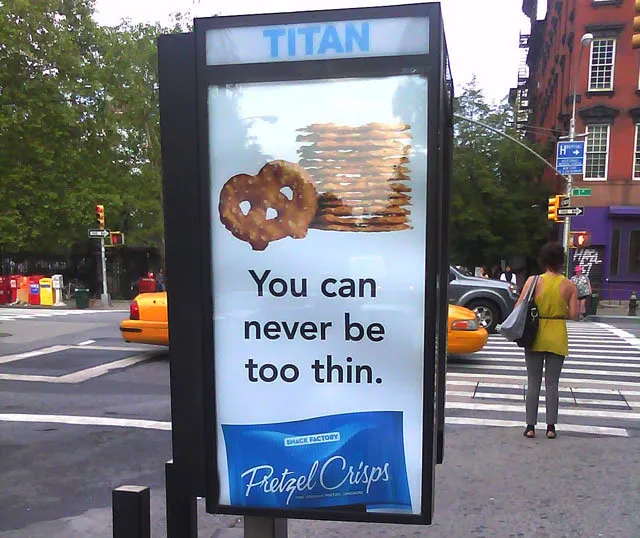Everyone is wayyyy too obsessed with thinness and it’s being forced on to everyone. Forcing us to see diet culture as the norm. There is a punishment for not aspiring and
actively working towards thinness.
Everywhere you turn, there is a diet culture reminder. With that, are messages that say, fat people are “overeating”.
Fat people are automatically seen as binge eaters in society and mental health professionals are not exempt from this belief. Much implicit bias training for mental health professionals who specialize in eating disorders is not given the proper tools on weight biases. The DSM-5, does a lousy job of addressing weight discrimination and many other ism.

Imagine being Fat and Black with an eating disorder and visiting a professional who hasn’t had weight bias training, anti-racist training, and is unaware of their own biases against fat Black Women. A large amount of eating disorders in the Black community are underdiagnosed and unreported.
there is evidence that Black and Latinx girls and women who don’t subscribe to normative white beauty standards are less likely to have eating disorders… however, that doesn’t mean fat women are widely appreciated or desirable.
— Coldy Squares, Ph.D. bka "Openly Black" (@sgbuggs) November 4, 2018
“Eating disorders are multi-factorial, as we all know. Based on my experiences, which is my own clinical evidence, all forms of eating disorders are connected in various ways to weight stigma, which is rooted into our cultural norms.” – Wendy Oliver-Pyatt, MD, FAED, F.IAEDP
For years, mental health professionals have tried to disprove that eating disorders like anorexia and bulimia were weight-restricted. Well, that’s not really true. There are tons of fat people who are anorexic.
“Anorexia is not a one-size-fits-all model: it is so much deeper than that. We need to move away from the mindset that all anorexic people are stick thin and look deeper.” – Hope Virgo
It’s extremely common for people to dismiss that a fat person also has eating disorders.
People with restrictive eating disorders end up being celebrated for limiting their intake, especially fat people. And what is everyone supposed to try to achieve? Thinness! Restrictive eating is overly celebrated because of its association with weight loss.
The media portrayal of fat people plays a role in how most people see fat people. Who remembers the Yoplait commercial?
It’s important for major brands to take responsibility for not taking a stance against diet culture. Last year, Tik Tok made a statement in a blog post. Announcing their band on restrictive eating ads.
“As a society, weight stigma and body shaming pose both individual and cultural challenges, and we know that the internet, if left unchecked, has the risk of exacerbating such issues,” TikTok said in a blog post. “That’s why we’re focused on working to safeguard our community from harmful content and behavior while supporting an inclusive – and body-positive – environment.”
“A child is 242 times more likely to have an eating disorder than they are to have type 2 diabetes.”
42% of 1st-3rd graders want to be thinner
81% of 10 year olds are afraid of being fat.The majority of kids are more afraid of being fat than they are of cancer, war, or their parents dying.
— Alissa Rumsey, MS, RD, CDN, CSCS (she/her) (@alissarumseyRD) February 15, 2021
Shouldn’t there be an “eating disorder” epidemic or something? No? Oh, I guess they haven’t figured out how to make money from that.
Many fat people are underdiagnosed for eating disorders. Fat people should do whatever it takes to be a thin person doesn’t help fat people get access to adequate treatment. More mental health professionals should receive training. The American Psychiatric Association needs to revisit the eating disorder diagnosis and make them less fatphobic.
Do you value the health of fat people?

